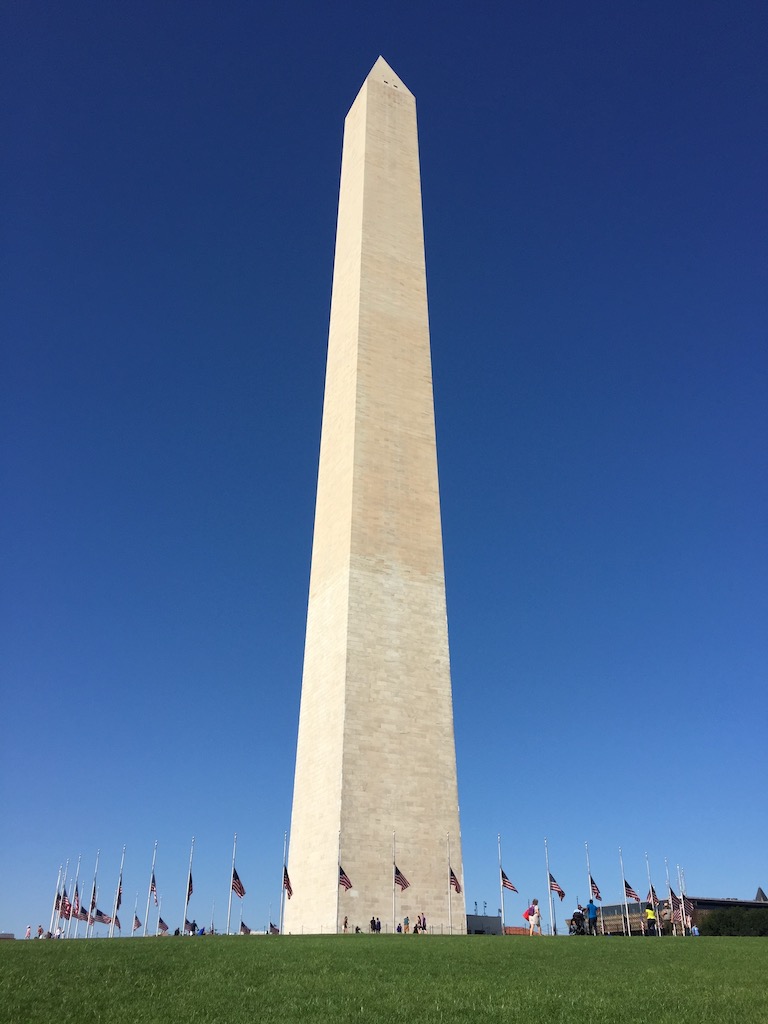I know better than to try to change anyone’s mind about politics. From opposite sides of the political chasm in this country we can list our reasons until we’re out of breath, but the only effect is to scare away the birds.

Maybe we can agree, though, that the climate this fall is one of fear. I have things I’m afraid of, and so do you. And separate from the fear that arises from my own perspective on current events, there’s a collective fear in the air and across the airwaves. My fear adds to the climate, and the fear out there increases my own. Maybe that’s your experience, too.
When I experimented with spending a week largely away from the news, not listening to the radio or tv newscasts, and reading very little from the newspaper, I felt somewhat differently. I realized that the endless reports, analyses, and what-if projections, were claiming my attention in a way that made me less thoughtful and more emotional. I still have grave concerns, and I need the information shared by ethical reporting. But I don’t need to feed an inner anxiety machine. Living in a constant state of fear, anger, and upset doesn’t help anyone.
I don’t want to belittle anyone for their politics. People whom I love and respect think differently from me. But I would like to share my main concern about this election, and I hope you’ll stay with me long enough to hear.
At a time when we disagree on so much, it’s easy to lose sight of the container that holds our ability to have a country in which we disagree. We have different ideas of how to attain increased peace and prosperity, but most of us do want to find a way to achieve that blessed state.
Stoking fear and mistrust encourages us to think of our “real” country as constituted of those who think like us. The Kentucky state flag reads, “United we stand divided we fall.” These words, of all that might have been chosen, remind us that there are powers that would turn us against one another for their benefit.
There are powers that would have us believe that the greatest threat to our democracy is from those who think differently from us. This way of tapping into our most basic fears is how much of politics works. The message is that the “others” would undermine our way of life, and that to elect them would hand the reins to those who do not value the principles on which our country was built. These are the political arguments in every election season.
The question of which party should hold the reins of power is a normal political question. But what’s at stake this year is not normal. It’s much bigger.
An unspoken but powerful message in the air this fall is that peace and prosperity will come through policies that lessen the ability of citizens to vote. This year, the question is whether we will accept the leadership of someone who is working to negate our ballots.
The most basic principle of a democracy is that the voters decide. We have a leader working against that principle. Most importantly, he has indicated that he has no intention of turning over the reins of power. We’ve never before had a president with a plan to circumvent the vote.
This year’s election is not just a matter of who will lead. It’s a question of whether we will hold onto our democratic system of government or not. Strange as it sounds, it’s apparently possible to vote away a democracy.
The power of the president is being used to make important institutions into political mouthpieces. A politically driven Justice Department can’t uphold justice. A politically driven CDC can’t maintain trust and respect as a source of reliable information. A military that acts to police its own country sets soldiers against fellow citizens instead of protecting them from foreign enemies. Under this president, long-respected independent institutions on which we rely for our way of life have been turned into vehicles for propping up power.
The existential threat is not from those with whom we disagree. This is a distraction from the larger issue. It’s like arguing over who gets to steer the Titanic. This president uses his rhetorical gifts to turn us against one another, which directs our attention away from what matters most.
The threat is whether we will have a democracy that allows each of us to have a vote, and permits debate about public policy. We don’t see public debates of important issues in Russia or China. Is that what we want?

Comment